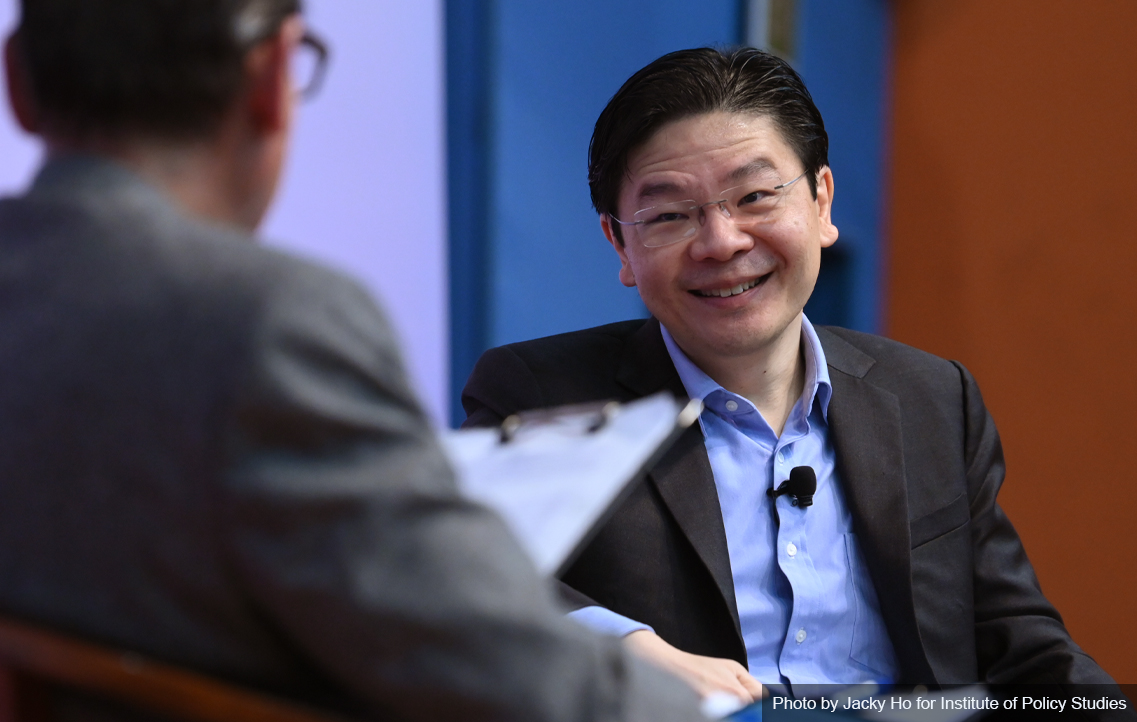
May 15, 2024, the date Singapore’s fourth prime minister took over the reins of government, will be one for the history books.
But what will this mean for Singaporeans? Perhaps nothing momentous, since Singapore’s calling card to the world has been political stability.
In fact, our political leadership probably hopes that this handover is as unexciting as possible, because this means that the transition has been smooth and everything works as it should.
We have known about this transition for some time. In April 2022, Mr Lawrence Wong was officially announced as the leader of the People’s Action Party’s (PAP) fourth generation, or 4G team.
Outgoing Prime Minister Lee Hsien Loong then stated in November 2023 that the handover would take place before PAP’s 70th birthday in November 2024, with Mr Wong leading the PAP in the next general election.
Finally, the handover date of May 15 was announced by the Prime Minister’s Office on Apr 15.
While this systematic revealing of information may have felt at times like a blockbuster movie pacing its teasers to build up anticipation for its release, we now officially have Mr Wong at the helm, who has promised “to continue defying the odds and to sustain this miracle called Singapore”.
THE WAY FORWARD
Mr Wong has been painted as a reliable and capable technocrat.
But events can occur in the blink of an eye; opinions can shift overnight. Policy changes may need to be more frequent or drastic. Hence, Mr Wong’s willingness to make “hard decisions” might be needed sooner than later.
Mr Wong will also have to do this with an acute sense of how to communicate these changes to the public, especially potentially unpopular or contentious ones.
He and the 4G team have tried to signal that they have their ears to the ground with the Forward SG exercise. He also said recently that they will engage the public to explain the government’s thinking behind policies.
If successful, this will translate into a more open and two-way communication between government and citizens.
HOPES FOR THE NEW WONG ERA
With an impending general election – the deadline for holding it being in November 2025 – Singaporeans will want to get to know their new prime minister better. Beyond his track record in politics, voters will want to know how he will perform his duty as Prime Minister.
Mr Wong has promised a different leadership style, and to build “a society where every Singaporean matters and a Singapore that matters to every Singaporean”.
This is a strong rallying cry, and in the days and months to come we will see how things play out as he eases into his new role.
The Forward SG masterplan, helmed by the 4G leaders, will hopefully show us more concretely what this society looks like. In particular, the policies on employment and training will likely be top of mind for many, as they will have a direct impact on the majority of the adult population.
Furthermore, the stability of employment for individuals will affect many other areas of their lives, including how they cope with rising costs, their quality of life, and their planning for the future.
STRONGER OPPOSITION, MORE UNCERTAIN ENVIRONMENT
Beyond these bread-and-butter issues, the 4G will also be heading into their first election facing a more vocal population, a stronger opposition, more diverse concerns and an uncertain geopolitical environment.
Externally, there will be difficulties in navigating the uncertain environment. But Mr Wong has assured Singaporeans that he will respond to these challenges while also finding opportunities for Singapore to continue to excel.
Domestically, it may no longer be enough for the ruling party to introduce policy with minimal public engagement, regardless of how well thought-out it is. Changing social norms, a more politically mature public and a more active citizenry online and offline mean that public opinion will become an increasingly important aspect of political and policy receptivity.
Mr Wong has mentioned that the way forward is to embrace diversity and open up spaces for different groups to air their views and participate in decision-making. For sensitive issues, he sees the government as facilitator of groups with conflicting views.
A platform for views from different quarters to be aired and considered would be productive. This is especially since Mr Wong has stated that the new leadership is prepared to re-examine all assumptions in refreshing Singapore’s social compact.
In his speech at the handover ceremony, Mr Wong promised to serve Singaporeans with all his heart, to never settle for status quo, and always seek to make tomorrow better than today.
After May 15, the stage is his, and Singaporeans will have front row seats in seeing how he will lead us in building a Singapore where “everyone can be the best possible version of themselves”.
Dr Teo Kay Key is Research Fellow at IPS Social Lab at the Institute of Policy Studies.
This piece was first published in CNA on 17 May 2024.
